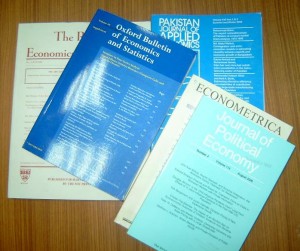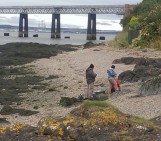This post does not discuss science per se but the topic is important from a personal point of view and hopefully useful to others in a similar position (i.e., PhD student currently putting together their first papers and hoping to learn more about the peer-review process). Feedback from those at a similar stage as well as more experienced members of academia is most welcome.
The British Society for Geomorphology Annual Conference held last year in Nottingham featured a Meet the Editor workshop for Early Career Researchers, including PhD students, which was a resounding success. It was hosted by Editors from several prestigious Geomorphology-focused journals and attendees learned more about the process of submitting a paper, gleaned considerable advice on the Do’s and Don’ts of academic publishing as well as what Editors are seeking in a good manuscript review. Until this workshop I had not considered PhD students as viable reviewers, but the positive encouragement from Editors at the workshop led me to investigate further the potential to act as a reviewer for other Journals. The responses were intriguing and I feel they are worth sharing with the wider community.
My research area is reconstructing recent environmental change, particularly historic floods, using lake sediment records but I am interested in most branches of Quaternary Science so I set about contacting Editors of various relevant journals. I explained I was a PhD student, that I had recently attended a workshop where the possibility of acting as a reviewer was highlighted and enquired as to their feelings on soliciting reviews from PhD students.
Firstly, I can confirm each Editor kindly replied very promptly with a detailed response. The responses fell into three general categories:
Some thanked me for my interest and stated that, while they recognized it would be a tremendous opportunity for a PhD student to be involved in the peer-review process, they felt it was inappropriate for one major reason: our lack of breadth of knowledge of the literature outside our specific fields. I tend to agree; while I attempt to read extensively around all aspects of Quaternary Science and try to keep abreast of recent methodological developments, I have no doubt that my three years’ experience of reading as a PhD student has barely scratched the surface of relevant literature. A member of staff in my Department who acts as an Associate Editor for a peer-reviewed journal confirmed this as being their view too.
Secondly, some Editors replied saying they had simply never before considered asking PhD students to act as reviewers. They invited me to submit my contact details and indicated they’d perhaps be in touch in the future. This suggests it is rather uncommon?
The third theme was entirely positive; Editors replied confirming they had solicited reviews from PhD students in the past and, in fact, these reviews had turned out to be some of their highest-quality reviews. The student had clearly taken the responsibility extremely seriously and had spent a huge amount of time going through manuscript in great detail. In these cases, I was asked to provide my contact details and they would add me to the database and be in touch if an appropriate manuscript appeared, which I was delighted to do.
I have intentionally left this post rather open-ended. I’d love to hear from any PhD students who have acted as a reviewer in the past. Did the Editor contact you directly or did your Supervisor put forward your name? (I’ve heard of this before from other colleagues). Was it challenging? Fun?
I’m also keen to hear thoughts of those with much more peer-reviewed publishing experience on the appropriateness of PhD students as reviewers or from Editors in any field as to whether they have solicited reviews from PhD students in the past. If so, how did you go about finding them? I imagine the most common source is via an academic search engine (i.e., GoogleScholar, Scopus, etc.); this suggests once you have published your first paper, you are much more likely to receive requests to act as a reviewer. Is this indeed the case?
Contact me on Twitter (@dschillereff) if the information may be of relevance to a wider audience, or indeed in the Comments section below.




LauRob85
Paula Koelemeijer said on my facebook page: I would agree that in general PhD students are less knowledgeable of the wider literature, but can act perfectly well as reviewers on research related to their PhD work. As soon as you publish an article, you are always asked whether you would act as potential reviewer for the journal. This doesn’t distinguish between students/postdocs/academics. I have always agreed, but so far not been asked to review anything. Other PhD students in the same situation, were asked for a review, so I don’t think it is unheard off.
Kayla I
As a PhD student, I’ve been a reviewer on a paper. It was a great experience and interesting to see the process from “the other side”. I didn’t solicit myself as a reviewer to the journal as I, like you once felt, thought that I didn’t have the proper creds to be reviewing the paper of someone who surely had more experience than I. I guess the editor thought differently, because they asked! As you mention in the article, I took the role very seriously and was commended by the editor on a swift, thorough, and thoughtful review.
Dan Schillereff
Many thanks for the really insightful comment Kayla. Your experience sounds great and definitely supports the view that there is no problem whatsoever with PhD students reviewing manuscripts. I am definitely going to look into the possibilities further. Thanks again!
Pingback: Soliciting peer reviews from PhD students | Geo...